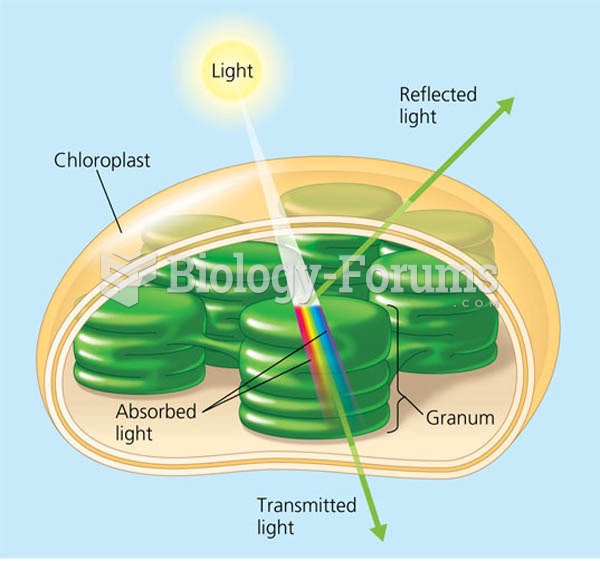|
|
|
No drugs are available to relieve parathyroid disease. Parathyroid disease is caused by a parathyroid tumor, and it needs to be removed by surgery.
The human body's pharmacokinetics are quite varied. Our hair holds onto drugs longer than our urine, blood, or saliva. For example, alcohol can be detected in the hair for up to 90 days after it was consumed. The same is true for marijuana, cocaine, ecstasy, heroin, methamphetamine, and nicotine.
The first oral chemotherapy drug for colon cancer was approved by FDA in 2001.
It is believed that humans initially contracted crabs from gorillas about 3 million years ago from either sleeping in gorilla nests or eating the apes.
The cure for trichomoniasis is easy as long as the patient does not drink alcoholic beverages for 24 hours. Just a single dose of medication is needed to rid the body of the disease. However, without proper precautions, an individual may contract the disease repeatedly. In fact, most people develop trichomoniasis again within three months of their last treatment.
 Blue light is scattered more than other wavelengths by the gases in the atmosphere, giving the Earth
Blue light is scattered more than other wavelengths by the gases in the atmosphere, giving the Earth
 (a) Blue arrows (right side): External components of the innate immune system: human body with skin, ...
(a) Blue arrows (right side): External components of the innate immune system: human body with skin, ...





